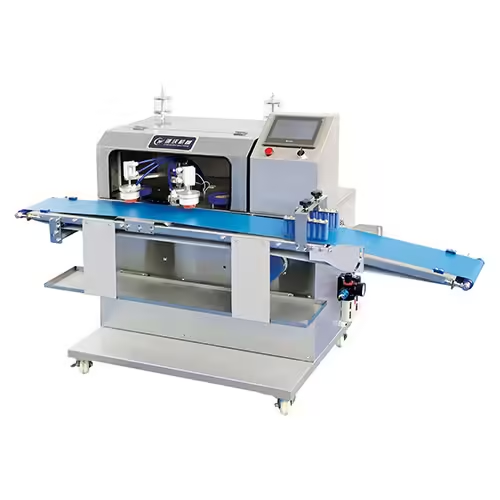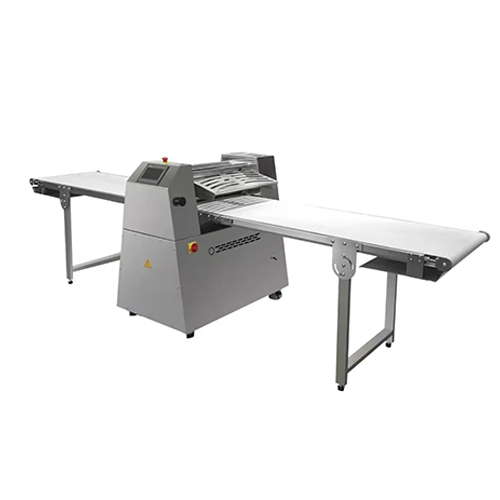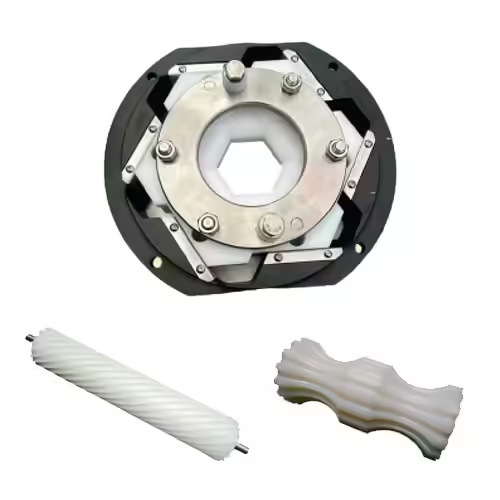



In today’s fast-paced food industry, efficiency, quality, and innovation are paramount. Food machine manufacturers play a crucial role in meeting these demands by providing advanced equipment that enhances production capabilities, ensures food safety, and drives business growth. This comprehensive guide explores the landscape of food machine manufacturers, highlighting key trends, essential features, and considerations to help you make informed decisions for your operations.
Food machine manufacturers design, produce, and supply equipment used in the processing, packaging, and handling of food products. Their offerings range from individual machines to complete production lines, catering to various segments of the food industry, including dairy, bakery, meat, seafood, and beverages.
The role of food machine manufacturers extends beyond equipment provision. They contribute to:
Top manufacturers invest in research and development to incorporate cutting-edge technologies such as automation, robotics, and IoT integration. These advancements enable real-time monitoring, predictive maintenance, and data-driven decision-making, enhancing overall operational efficiency.
Recognizing that each food processing operation has unique requirements, leading manufacturers offer customizable solutions. This flexibility ensures that equipment aligns with specific production needs, facility layouts, and product types.
Adherence to international food safety and quality standards, such as ISO, HACCP, and FDA regulations, is a hallmark of reputable manufacturers. Compliance ensures that equipment meets stringent hygiene and safety requirements.
Comprehensive after-sales services, including installation, training, maintenance, and technical support, are essential. Manufacturers that provide robust support contribute to prolonged equipment lifespan and minimized downtime.
The following table provides an overview of common equipment categories offered by food machine manufacturers, along with their typical applications:
| Equipment Category | Typical Applications |
|---|---|
| Mixing and Blending | Dough preparation, sauce mixing, ingredient homogenization |
| Cutting and Slicing | Meat slicing, vegetable dicing, cheese cutting |
| Cooking and Heating | Baking, steaming, frying, pasteurization |
| Cooling and Freezing | Blast chilling, freezing of prepared meals |
| Packaging | Vacuum sealing, tray sealing, labeling |
| Conveying Systems | Product transportation between processing stages |
| Cleaning and Sanitizing | Equipment cleaning, CIP (Clean-In-Place) systems |
| Inspection and Sorting | Metal detection, weight sorting, visual inspections |
This categorization helps identify the types of equipment that align with specific production needs.
The integration of automation and digital technologies is transforming food processing. Manufacturers are developing machines equipped with smart sensors and IoT capabilities, enabling real-time monitoring and control. This shift enhances production efficiency, reduces human error, and facilitates predictive maintenance.
Environmental concerns are driving the demand for energy-efficient and sustainable equipment. Manufacturers are focusing on developing machines that consume less energy, minimize waste, and utilize recyclable materials, aligning with global sustainability goals.
Consumer preferences for natural and minimally processed foods are influencing equipment design. Manufacturers are innovating to accommodate clean-label production, ensuring that machines can handle organic ingredients without cross-contamination.
The global food processing equipment market is experiencing significant growth. The market generated revenue exceeding 50 billion USD in recent years and is projected to grow steadily in the coming decade. This upward trend reflects increased demand for automation, packaged foods, and efficient production.
Evaluate your production volume, product types, and processing requirements. This assessment helps identify manufacturers that offer equipment tailored to your specific operations.
Consider manufacturers that embrace technological advancements, offering equipment with automation, digital controls, and data analytics capabilities. Such features enhance operational efficiency and adaptability.
Beyond the initial purchase price, assess the total cost of ownership, including maintenance, energy consumption, and potential downtime. Manufacturers that provide durable, energy-efficient equipment with reliable support services offer better long-term value.
Research the manufacturer’s reputation in the industry, seeking feedback from existing clients and reviewing case studies. A proven track record indicates reliability and quality.
AI is being incorporated into equipment to optimize processes, predict maintenance needs, and enhance quality control. For example, AI-powered visual inspection systems help reduce defects and ensure higher product consistency.
Manufacturers are embracing smart manufacturing by integrating IoT devices and real-time data analytics into their equipment. This allows for predictive maintenance and operational optimization, leading to improved efficiency and reduced downtime.
Machines are increasingly designed to consume less power while delivering higher productivity. Technologies such as variable frequency drives, energy recovery systems, and optimized thermal processes help reduce energy consumption and lower operational costs.
With automated systems and synchronized equipment, production lines become more cohesive and efficient. This reduces bottlenecks, shortens lead times, and increases the overall throughput of food manufacturing facilities.
Modern machines often come equipped with features that support traceability. These systems track and document every step in the production process, ensuring compliance with food safety regulations.
Manufacturers that offer scalable machine solutions allow food producers to expand their operations seamlessly. Modular systems can be upgraded or reconfigured as demand grows, making it easier to meet new market opportunities.
By working with top-tier food machine manufacturers, businesses gain early access to innovative equipment that can set them apart from competitors.
Advanced machines contribute to lower production costs by minimizing waste, reducing labor requirements, and optimizing energy use.
Machines engineered for precision ensure that every batch meets quality standards, reducing the likelihood of customer complaints and product rejections.
Stainless steel components, easy-to-clean surfaces, and sealed systems help prevent contamination and make cleaning more efficient, aligning with hygiene protocols.
Global manufacturers tend to have more resources for innovation, a wider range of products, and established reputations.
Your choice depends on factors such as the complexity of your operations, budget, required technology level, and after-sales service expectations.
Food machine manufacturers are the backbone of modern food production, driving innovation, efficiency, and safety across the industry. Whether you’re launching a new facility or upgrading your existing production line, partnering with the right manufacturer can make all the difference.
Ready to elevate your production capabilities? Contact us today to explore our tailored solutions from top-tier food machine manufacturers. Let’s power your growth together.
What should I consider when selecting a food machine manufacturer?
Consider experience, technology offerings, compliance with food safety standards, after-sales service, and customization capabilities.
Are machines from food machine manufacturers energy efficient?
Yes. Many modern machines are designed for energy efficiency and sustainability, incorporating features that reduce consumption and waste.
Can food machine manufacturers accommodate custom production processes?
Yes. Most offer customization options to meet unique operational needs, including facility layout and product specifications.
What industries do food machine manufacturers serve?
They serve sectors such as bakery, dairy, beverages, frozen meals, ready-to-eat products, and more.

